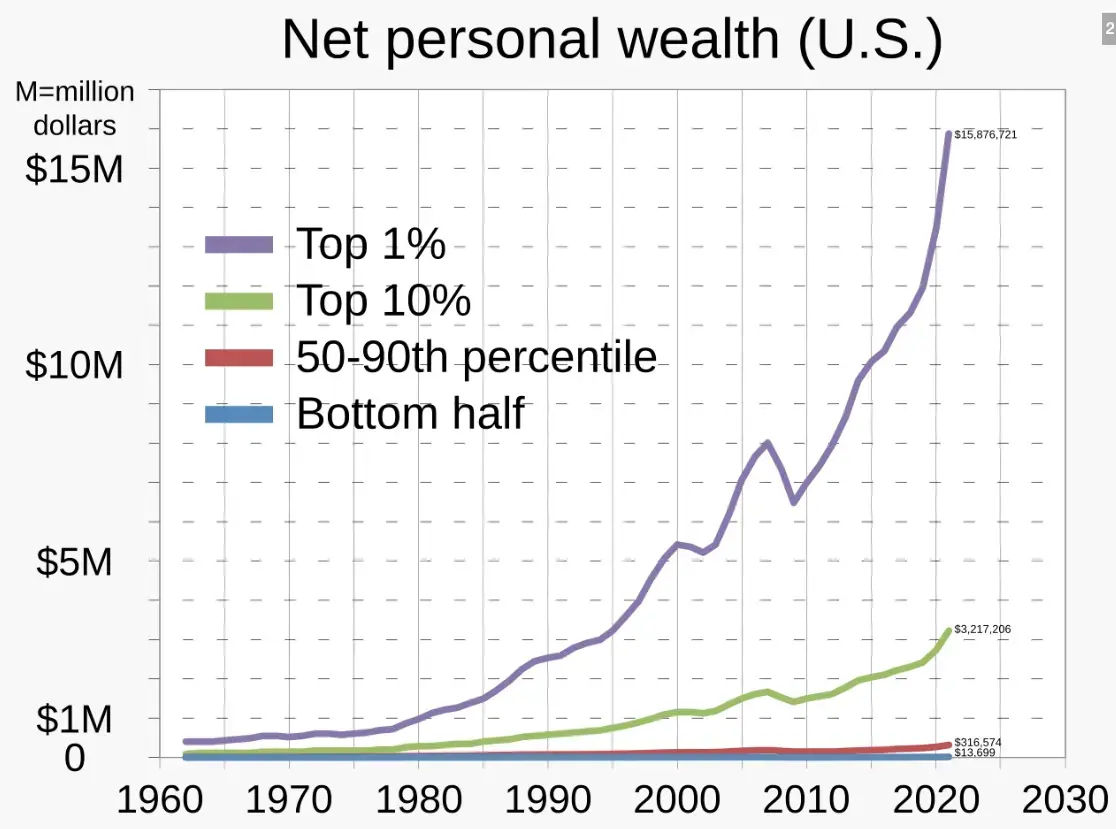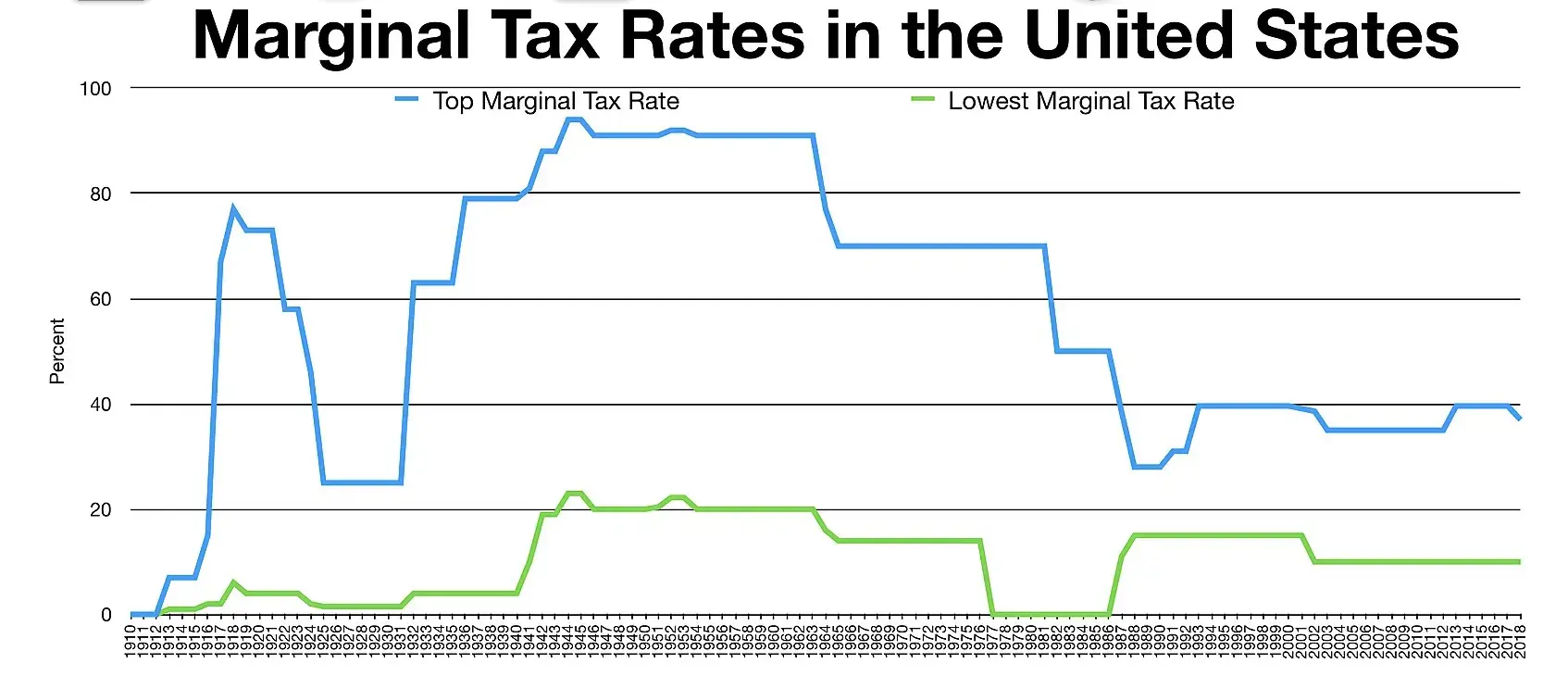Hey you 'muricans ... get those Swiss watches pronto [tariffs and international trade]
hen
·You bring up some very good points. I think I laid out some of my opinions earlier, and state again there is no magic bullet. Right now, it’s really hard to justify soft power spending as tax paying citizens are struggling to pay rent for shack, next to a homeless encampment. The squalor in our cities has grown astronomical since you were born.
The revenue this have helped create must be incalculabel and all this is shut down to give the ultra rich another tax cut. This is extreme short term thinking. Its petty and contemptible.
The soft power have given the US its most loyal allies, Europe. The hard power have created much hatered for the Us in South America and Asia, but the soft power have made them all want to be like you dispite the hatered. Think about that.
Tarifs are not going to help the American consumer, its just going to make products even more expencive. Why bring back production to the US when there is almost full employment? (I have seen figures of 2.5 and 4,3 % unemployment). Tarifs are good for emerging small economies not super powers.
Porteroso
·Or from China on Taiwan, unfortunately.
But right now everyone is in wait and see mode. If a deal with Japan is struck in the next week, it will signal to the world that there is a way out of this. If Bessent cannot get the deal, it might get ugly.
The tariffs are going to make groceries much more expensive for them.
Speaking of that...I thought we were going to have $1.50 gas and cheap eggs as soon as Trump took office. That's what he promised.
The American economy just works best when oil is within a certain range. Too cheap and a lot of spending power dries up, jobs are lost. Too expensive, and the price of everything rises from increased logistical cost, which doesn't quite come back down enough when the price of oil does.
It will be interesting to see whether the OPEC continues to ramp up production or not.
Mtek
·@Porteroso I’m a fan of Bessent, he is by far my fav in the current admin. I hope he can pull it off, I don’t know if he has higher political aspirations but he for sure is a rising star.
pdxleaf
··So on and so on and scoobie doobie doo100%.
I love Japan, my wife grew up in Chiba. Their culture is the best I’ve seen, and I’ve spent time in several countries. I wish our school system was like theirs, respect and community is the focus from the beginning, It’s totally ingrained. I’m hopeful, if AI takes over, our early education system moves to social skills.
We stayed in Shibuya
That was a choice the USA could make. What's sad is that most Americans reaction is to say it's impossible and would never happen. America's too big, too fractured, it's too much government, we're already spending too much on food, we'd feed kids who shouldn't be in the country, why should the government pay instead of the parents, etc...
But it's really a choice. Cultures demonstrate values, and values drive choices. There's a meanness and pettiness in our current society that I don't think AI can overcome.
Edited:
Mtek
·I recently tripped over some discussion about school lunches in Japan. The short of it is that Japan made a decision to change the school lunch process. They valued and paid for fresh ingredients prepared in each school with chefs and nutritionists.
That was a choice the USA could make. What's sad is that most Americans reaction is to say it's impossible and would never happen. America's too big, too fractured, it's too much government, we're already spending too much on food, we'd feed kids who shouldn't be in the country, why should the government pay instead of the parents, etc...
But it's really a choice. Cultures demonstrate values, and values drive choices. There's a meanness and prettiness in our current society that I don't think AI can overcome.
I fear for their population issues.
My wife told me were no janitors during her early education....she and her classmates had chores at school. They learned to take care of things, a community effort. It’s a totally different mind set.
Edited:
Tony C.
··Ωf Jury memberThat was a choice the USA could make.
Cultures demonstrate values, and values drive choices.
Agreed. And here's a pungent reflection of what has arguably been the dominant trait in American culture, as expressed over the past ~50 years:
TimeODanaos
·There's a meanness and pettiness in our current society that I don't think AI can overcome.
TimeODanaos
·Just one of literally countless, similar choices, based primarily on the desire to enhance the long-term health of a society, that the U.S. could have made over the past several decades, but didn't. Why? ⬇️
Agreed. And here's a pungent reflection of what has arguably been the dominant trait in American culture, as expressed over the past ~50 years:
Btw, I was recently in Europe and Asia, and *the schoolyard abuse is really starting to cut through with friends and allies. Even the camaraderie of anglophones overseas you get between strangers in hotels and airports is definitely breaking down, as Canucks and Brits shuffle along the bar to avoid unwelcome maga entanglements. Sad. (So sad.)
pdxleaf
··So on and so on and scoobie doobie dooFIFY (with regret, sorry).
Some kindof irony there.
ErichPryde
·as Canucks and Brits shuffle along the bar to avoid unwelcome maga entanglements. Sad. (So sad.)
Along the same line of thought I have been thinking about the tolerance paradox a lot lately, and exactly what it is we need to do as a (US) culture to move away from accepting the pettiness, intolerance, and ignorance that some people believe they have the right to display openly. How do we push this group and sort of behavior back into the margins while staying true to our principles? It's definitely something that all Americans should give serious thought to.
Edited:
pdxleaf
··So on and so on and scoobie doobie dooJust one of literally countless, similar choices, based primarily on the desire to enhance the long-term health of a society, that the U.S. could have made over the past several decades, but didn't. Why? ⬇️
Agreed. And here's a pungent reflection of what has arguably been the dominant trait in American culture, as expressed over the past ~50 years:
A commentator recently made the following observation.
A middle class didn't widely exist prior to the 20th century. After the second world War, laws and regulations were written to build and support a middle class, which flourished.
In the last few decades, the middle class began to think it was rich. Consequently, they voted in favor of laws that sided with the rich, which weakened the middle class.
This is of course overly simplistic, but it felt on target to me.
texasmade
·A commentator recently made the following observation.
A middle class didn't widely exist prior to the 20th century. After the second world War, laws and regulations were written to build and support a middle class, which flourished.
In the last few decades, the middle class began to think it was rich. Consequently, they voted in favor of laws that sided with the rich, which weakened the middle class.
This is of course overly simplistic, but it felt on target to me.
Tony C.
··Ωf Jury memberIn the last few decades, the middle class began to think it was rich. Consequently, they voted in favor of laws that sided with the rich, which weakened the middle class.
She chose to bring me up in Evanston, IL, the first suburb north of Chicago, on Lake Michigan, home of Northwestern University. It was a spectacular place for a child such as myself to grow up. Both the city, and its high-quality schools were integrated, at least to some extent, and it was beautiful, relatively safe and quiet, yet with easy access to the "Windy City", either by car or public transportation.
We lived in three different apartments, just blocks from the lakefront. Today they are likely all condos, valued at between $300k–$1m+.
Today, a single parent of the above description in the U.S. would almost certainly live under radically different conditions, at least in any large metropolitan area.
***
As for the middle-class beginning to think that it was rich, I wouldn't put it that way. In my view it was more a combination of an increasing societal emphasis on material wealth (e.g. "greed, for lack of a better word, is good" – Gordon Gekko, in the 1987 film Wall Street), and more importantly, the deeply insidious promotion of a conflation between debt and wealth.
It is the latter that was, of course, at the heart of the blowing of the biggest credit/debt bubble in history, and the damage being done as we speak, while it inevitably deflates.
Edited:
140dave
·ErichPryde
·***
As for the middle-class beginning to think that it was rich, I wouldn't put it that way. In my view it was more a combination of an increasing societal emphasis on material wealth (e.g. "greed, for lack of a better word, is good" – Gordon Gekko, in the 1987 film Wall Street), and more importantly, the deeply insidious promotion of a conflation between debt and wealth.
In a way it's the same thing. The drive to live a particular lifestyle seems to encourage many to exaggerate their actual wealth. People who engage readily in self-deception are easy targets for other sources of deception. Perhaps the line between "I deserve/they deserve" becomes blurred.






